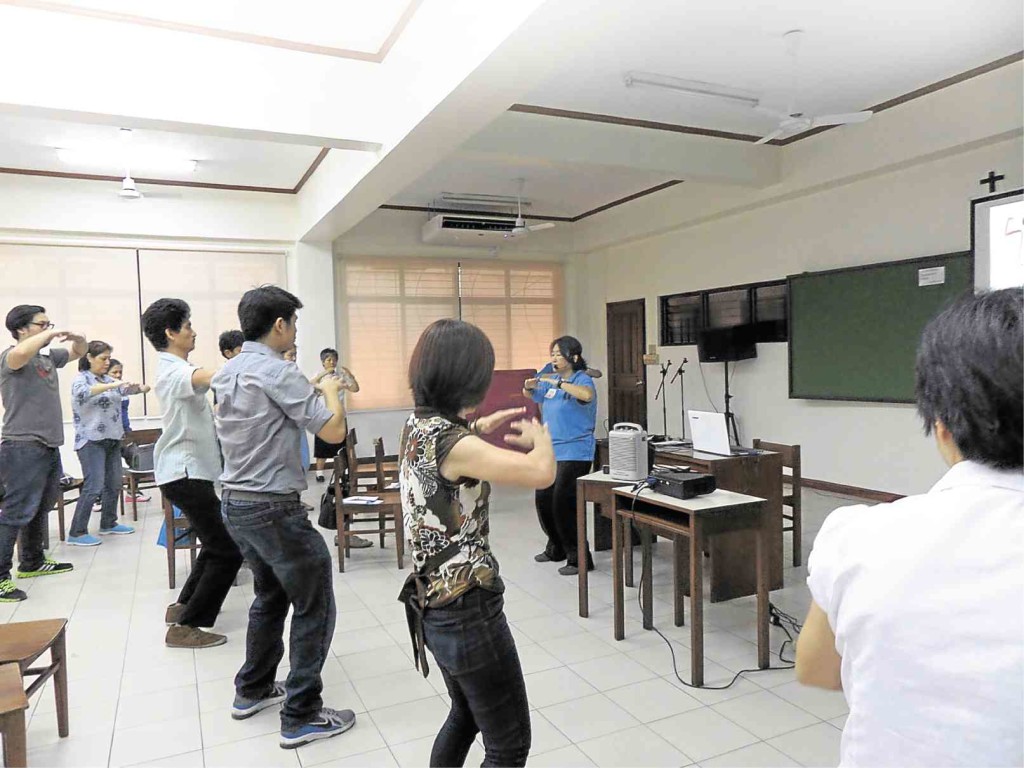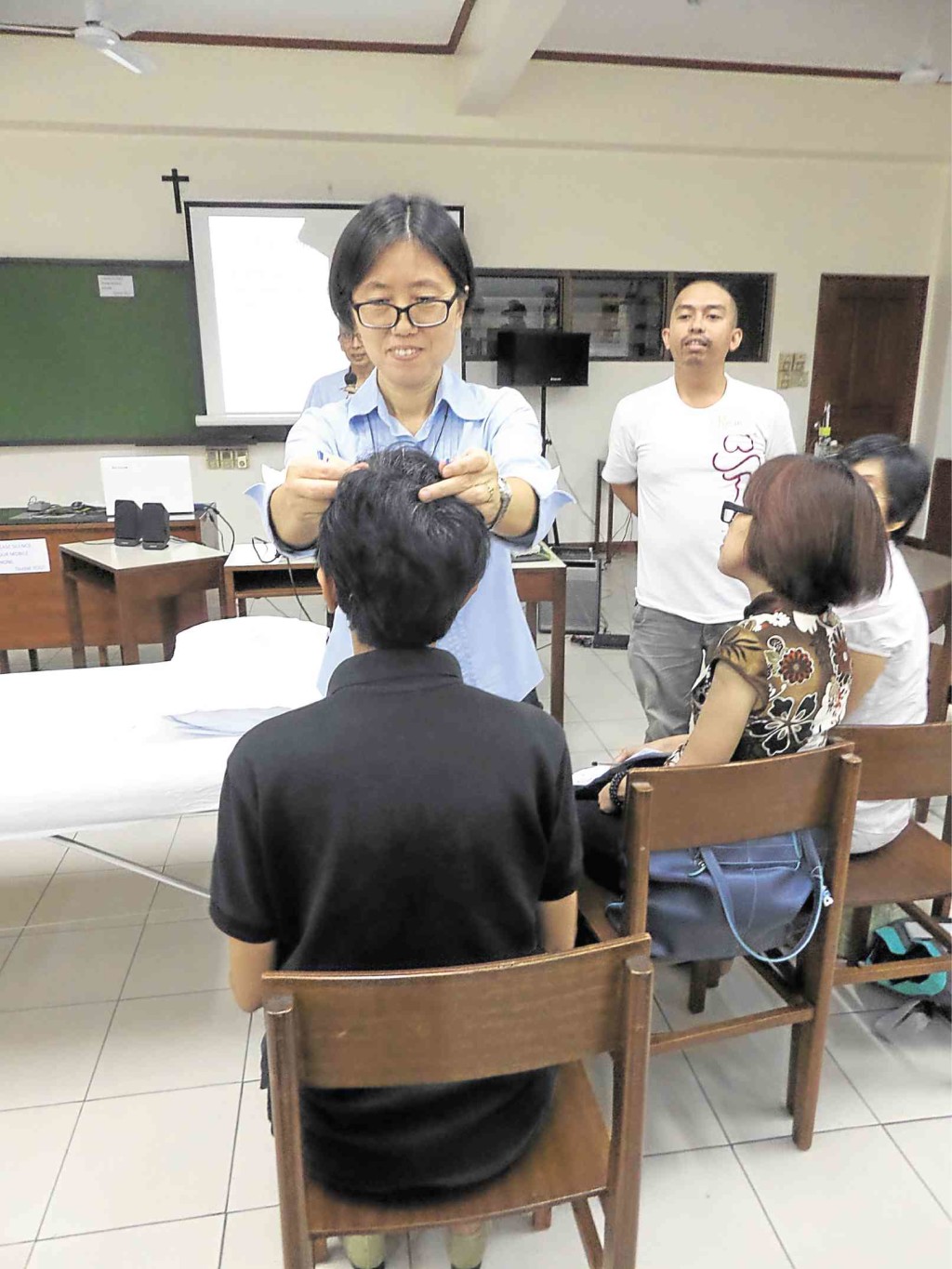
WITH the growing popularity of and demand for alternative and traditional cures, the Missionary Sisters of the Immaculate Conception of the Mother of God’s Institute of Traditional Chinese Medicine (SMIC-ITCM) will try to increase the “supply” of such services by going into the business of training practitioners in age-old healing therapies.
SMIC-ITCM will start offering in September certificate courses in acupuncture and traditional Chinese medicine (TCM).
Sister Shengrong Liu says, “Our Chinese medicine school is the first and only one to offer the comprehensive TCM and acupuncture courses.”
Dr. Edilberto M. Concepcion, SMIC-ITCM president, says the school “will provide the first training program that is comprehensive, is fully staffed by credentialed and experienced faculty, and is supported by renowned experts from the USA, China and Taiwan.”
He adds, “This undertaking is being made in an effort to uplift the practice of Chinese medicine (as) it continues to gain popularity here and abroad.”
The four-trimester Comprehensive Acupuncture Training Program fulfills requirements set by the Philippine Institute of Traditional and Alternative Health Care for the certification of acupuncturists.
The Comprehensive Training Program on Traditional Chinese Medicine, on the other hand, is a nine-trimester course that includes a comprehensive acupuncture course and a full course in Chinese herbology.
Also covered by the TCM course are Chinese nutrition; qi gong, an ancient Chinese healthcare system that integrates physical postures, breathing techniques and focused intention; and taiji (tai chi), a gentle form of exercise that combines deep breathing and relaxation with slow and gentle movements that can help maintain strength, flexibility and balance.

In a recent seminar on TCM and acupuncture that formally launched the ITCM, Dr. Qiming Zheng, in discussing Chinese pharmacology, pointed out that, while “Western medicine was directed at specific diseases, TCM addresses the (general) body condition” and was adapted to individual requirements.
Herbal combinations are based on the stage of the disease and, unlike in Western medicine, the dosage is not fixed.
SMIC-ITCM hopes to spread knowledge of acupuncture and TCM and produce more skilled practitioners of traditional Chinese healing arts to supplement and complement Western therapies.
With the programs, more practitioners will be provided the right training and skills. Thus, acupuncture and TCM may be brought to more areas, particularly outside Metro Manila.
More qualified practitioners will also relieve the pressure on Liu’s acupuncture clinic, which is already stretched to the limit and unable to expand its clientele.
Applicants for both TCM and acupuncture courses must have completed at least 90 undergraduate college units or two years of general education studies.
Other requirements for those wanting to be certified acupuncturists include an updated resume with cover letter and passport size pictures, transcript of records and letter of recommendation from a former professor, supervisor or employer.
For the TCM program, applicants should submit an updated resume with cover letter and passport size picture, transcript of records, letter of recommendation from a former professor, supervisor or employer, and an essay detailing their purpose for pursuing the course, among other things.
SMIC, the congregation behind ITCM, was founded in 1910 in Brazil. The international congregation has communities in Namibia, Angola, Germany, United States, Taiwan and Vietnam, among others.
It came to the Philippines in 1993, initially focusing on religious formation.
Since 1997, it has been managing a Chinese school, Sacred Heart School, in Tacloban City founded by Chinese priests.
Liu says the congregation has also been undertaking medical missions since 2011 at the New Bilibid Prison in Muntinlupa City for the Maximum Security Compound prisoners and conducting catechism classes in some parts of the prison.
Since 2015, SCIM has also been conducting a monthly medical mission at San Antonio de Padua Parish in Quezon City.
“We are starting our mission in traditional Chinese medicine this year,” Liu says, “The TCM school is another way for us to (give) back to the society for nurturing our religious formation in this land. . . . we have been well-accepted and well-nurtured by the kindness and compassion of the Filipino people. We appreciate all the love we received in this foreign land, which strengthened our faith and our religious calling.”
Classes at SCIM-ITCM will start on Sept. 2. Lectures will be conducted Fridays and Saturdays, allowing part-time students to enroll. Each unit will cost P2,960, Liu says.
The senior faculty consists of Sister Regina Liu, Concepcion, Qiming and Sister Juan Liu.
TCM enrollees will have to complete 952 hours of internship while acupuncture students will be required 500 hours of internship.
Liu says SCIM-ITCM may also conduct short training programs or seminars for business or social groups on TCM and/or acupuncture, provided they are given enough time to prepare for them.
SCIM is at 17 Panay Ave., Quezon City. Call 3740000 or e-mail smictcmmanila@gmail.com.

